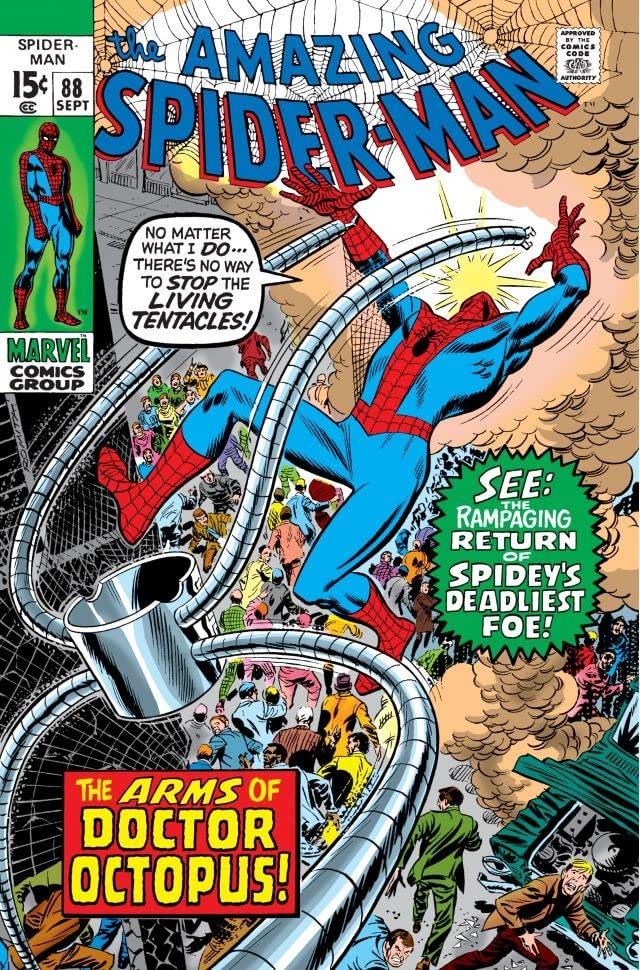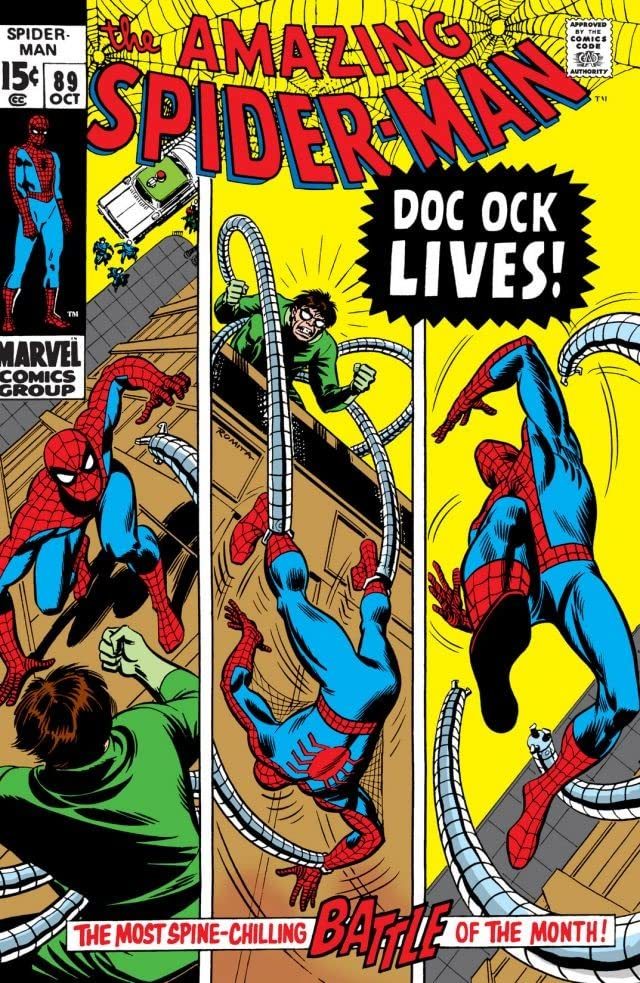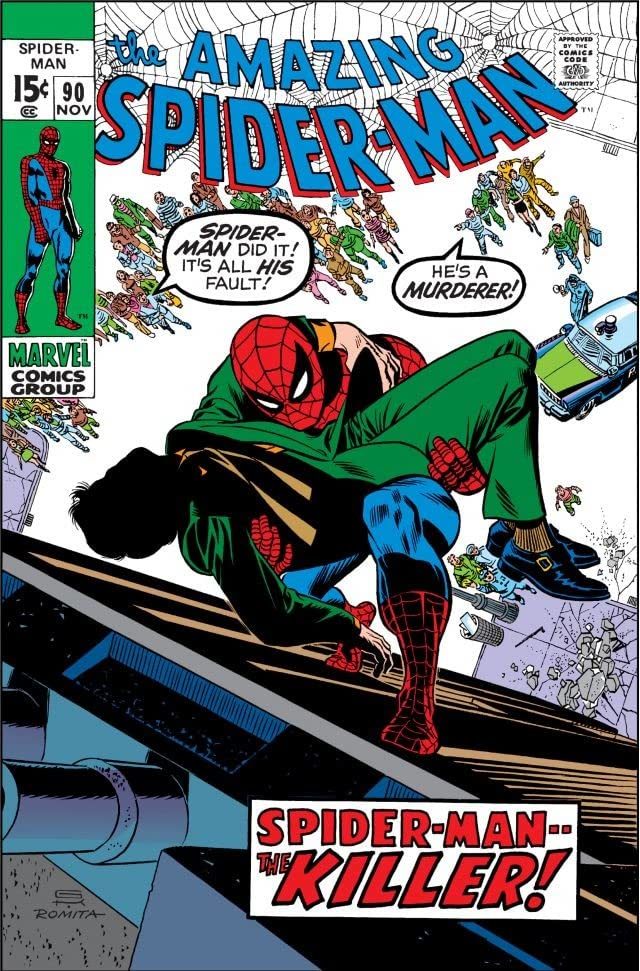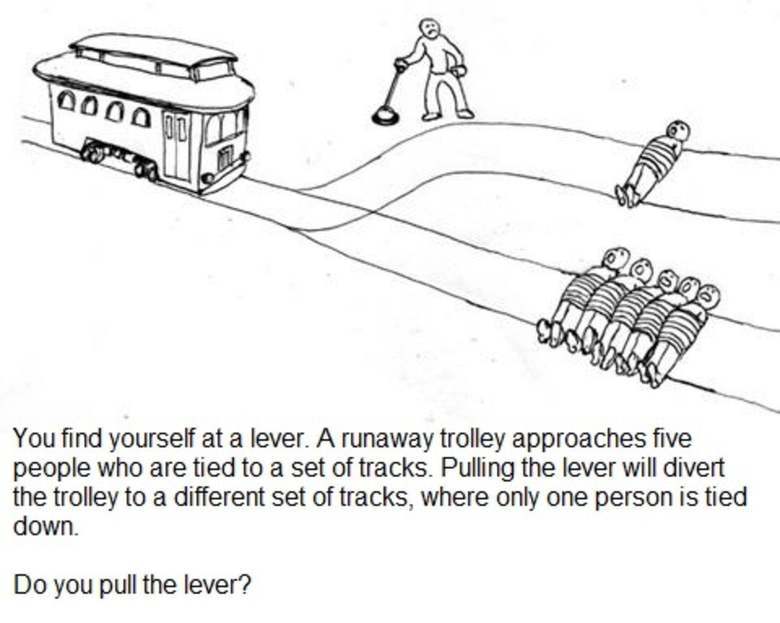Monthly (Comic) Book Club - February - Watchmen13817
 If the viagra is working you should be well over a 9.8. If the viagra is working you should be well over a 9.8.
|
xkonk private msg quote post Address this user | |
| Issue 12 finally gets us to the fireworks factory, sort of literally since the first fifth of the book is just splash pages of devastation. It also features just about the only 'superhero' stuff in the series, which is kind of odd for a book all about superheroes. Manhattan did his stuff on Mars and whatnot, but there aren't really any superhero fights or craziness like that until this issue, where Veidt catches a bullet with his bare hands and Manhattan uses his powers in a more angry way. In the meantime, Veidt confesses to basically everything. He did kill his servants to cover the evidence and cut all traces back to him. But his plan works; everyone thinks that aliens somehow appeared on Earth, so Russia is pulling back their tanks and people are talking about sending aid and whatnot. The only interesting part is what happens next: Dan, Laurie, Rorschach, and Manhattan have to decide what to do. Veidt says they can't say what happened, or kill him and risk an investigation that finds out, because knowing that it wasn't aliens will undo everything and put the world back on the path to war. Manhattan finds it logical, and Dan and Laurie get on board. Rorschach, rigid as always, doesn't believe in compromise. Manhattan follows him outside and blows him up before he can go back to the US and tell people what happened. From there, it's wrap-up. No one knows that Rorschach had dropped his journal in the mail for the New Frontiersman, leaving open the chance that perhaps someone will find out what happened after all. Dan and Laurie take on disguises (I guess they're probably still wanted by the police? And Laurie at least is somewhat known in her civilian identity) and visit Sally. Laurie says that she found out who her dad was, and understands a bit better now why people make choices and keep secrets. Dan is also still apparently a horndog, as he flips through Sally's Tijuana Bible and admits to having owned one before. And maybe still interested in throwing on the costume once in a while. |
||
| Post 101 • IP flag post | ||
 If the viagra is working you should be well over a 9.8. If the viagra is working you should be well over a 9.8.
|
xkonk private msg quote post Address this user | |
| I was going to watch the movie before doing some kind of wrap-up post, but a) Amazon says the director's cut is 'currently unavailable' b) the ultimate edition with the Black Freighter cartoon is purchase only c) the regular edition is rent only, and I have so much free/already paid for stuff that I couldn't get myself to pay for it. I'll gather my thoughts sometime this weekend. | ||
| Post 102 • IP flag post | ||
 COLLECTOR COLLECTOR
|
dielinfinite private msg quote post Address this user | |
| Starting Monday, New Month, New Reading, New Thread! Next Month, the many deaths surrounding the Amazing Spider-Man! Wk1 (3/1-3/7): Amazing Spider-Man 88-90    |
||
| Post 103 • IP flag post | ||
 COLLECTOR COLLECTOR
|
dielinfinite private msg quote post Address this user | |
| So this issue in a lot of ways feels like an ending because much of the important action feels like its happened and all that’s left is to just wrap things up. Early in the issue we return to the Black Freighter. The Castaway seeking to rid his home of the pirates that have surely overtaken it. In his haste and madness he beats what turns out to be his wife in front of his daughters. Realizing what he’a done, the castaway flees. I think what is admired about the tale of the Gordian knot and why it is used as an example of lateral thinking is that it takes an unexpected course to solve a problem. Yes it is brute force but it is in the realization that you have other options available beside the obvious, in this case struggling futilely to undo the tangle of ropes. Similar to Kirk’s solution to the Kyobayashi Maru test. Both are certainly against the spirit of the challenge but when the challenge is impossible by nature or by design then you either play by the rules and fail or break them and succeed. This is the kind of situation Ozymandias sees in the world. The world powers are trying to preserve peace by amassing a greater and greater potential for destruction and in doing so already destroying the planet by pollution and destruction of the environment. The obvious approach would be to get the world powers to agree to a stable peace while getting rid of wmds and working together to preserve the planet. Ozymandias felt this approach is impossible as the knot was so he instead had to find an unorthodox solution. Yes his solution required money and violence but when presented with the challenge of achieving world peace who would even think manufacturing a fake enemy to unite the world against was even an option? Of course, as the Black Freighter seems to mirror the situation but with more clarity. The Castaway was operating on assumptions he understood to be true...but then they weren’t. And I think that’s what Joey’s fight with her ex is meant to represent. Yes we are emotional creatures that can turn on each other but many people were come to help stop the fight so maybe there was hope for humanity after all? The destruction of the biome also confused me a little. It is a powerful image of a vibrant world dying in the cold. I don’t think its so much to get rid of evidence, as the article at the end of the issue shows the dome is known to the world so anyone coming to investigate would wonder where it was. In addition, wouldn’t freezing everything under snow preserve evidence? I think it meant to be more symbolic. Of course there is the callback to the Egyptian practices about killing and burying servants with the pharoh they served but on another level I wonder if it was meant to reflect the heinous amount of death Veidt was to bring about or maybe it was a sacrifice, both his servants and the world he created where it shouldn’t exist, in solidarity to those who will, unwillingly, sacrifice their lives for Veidt to accomplish his goal. The brief encounter Veidt recalls with the Comedian does lend weight to @michaelekrupp’s theory that the Comedian may have killed Hooded Justice. Maybe he took it as a personal score to settle so reported the mission as failed. Ozymandias monologuing like so many villains have done and still do, revealing his horrific master plan to the heroes who we all expect would find a way to stop him only for him to turn around around and say that it is already done was such a bombshell in how it averted the established cliche, I can only imagine it was even more shocking when it was first released. How could our heroes really have failed in stopping such a horrific event? And what do we do now? I love the final frames of the issue as the Bernards hug and everything fades to white and ending with the Quote from Shelley’s poem. The movie made some slight changes to the details here. Where Ozymandias asks if they think of him as a “republic serial villain” the movie made it a little more on the nose by changing it to something like “do you think I am some comic book super villain?”. Of course it makes a little less sense in-universe where superhero comics were not as prevalent so the cliche is less likely to have been established. Also, I guess to simplify the story, the movie did away with the genetically created “alien.” Instead, Ozymandias’ plan was to make it seem like Dr Manhattan attacked New York, thus turning the world against him instead of an alien. It worked well enough for the movie but in removing all the genetic modification stuff in the background it just made Ozymandias’ Lynx Bubastis seem to come out of nowhere. Speaking of Doctor Manhattan, where the hell is he and Laurie during this issue? Since he left with Laurie Nite Owl and Rorschach have recovered Rorschach’s spare costume, layed low for a while, worked the underworld for information, uncovered Veidt’s plan, flew to Antarctica, rode 20 miles on their little hover bikes, got their ass kicked by Ozymandias, listened to Ozymandias detail his master plan, and finally watch him blow up a large chunk of New York. What have Laurie and Doctor Manhattan been doing for like 2+ days? I know the book can toy with time a bit but I don’t think Laurie and Doc’s conversation was actually spread across several days. On a final note on this issue, I did smile a little the interview at the end of the issue where Ozymandias references the comic book trope of heroes often fighting each other when they first meet, thinking the other an enemy before sorting things out. |
||
| Post 104 • IP flag post | ||
 If the viagra is working you should be well over a 9.8. If the viagra is working you should be well over a 9.8.
|
xkonk private msg quote post Address this user | |
Quote:Originally Posted by dielinfinite The Gordian Knot, and Veidt's plan, are certainly good examples of "outside the box" thinking. But I thought of Thanos more this read through when I thought of Veidt. Especially with the movie I think Thanos had kind of an unexpectedly big fanbase, like he was almost a tragic hero. "It was a touch choice but he did what he thought was right!", "How else we could we avoid this impending tragedy!", etc etc. But similar to my complaint about Thanos, my complaint with Veidt would be that he didn't think enough. Thanos had literally all the power in the universe but the only way he could think to solve his problem was to kill people. Veidt was a little more limited but he still had a ridiculous array of options and years to make it a reality (and apparently he could make quite a plan into a reality!), but the only way he could think to solve his problem was to kill people. These aren't heroic, or even tough, choices. These are flawed decisions. Another parallel I've talked about with other people is the trolley problem. If you've taken a philosophy class, or have a certain type of person share memes with you, then you've probably seen it. The trolley problem is an example of a quandary that researchers use to study moral reasoning, but it is framed as an either/or question that basically emphasizes a cold cost/benefit analysis or should I kill a few people or more people.  The trolley problem in the real world would be a terrible decision. The trolley problem in a comic book world isn't even a problem! Would Superman, or Iron Man, or Captain America, even accept the premise? They would lift the trolley out of the way or stop it with their bare hands or whatever. Veidt's (and Thanos' A more interesting discussion would be the other crimefighters after the fact. Are they right to keep the secret? As I type this I think I would say no, but I'm more sympathetic to yes than I would be for Veidt. |
||
| Post 105 • IP flag post | ||
 COLLECTOR COLLECTOR
|
dielinfinite private msg quote post Address this user | |
| @xkonk While I understand your issue, particularly with Thanos, I’m not sure it necessarily applies to Veidt in this case. I disagree with the assumption that there is necessarily another solution that would’ve accomplished all the goals necessary within the time and resources allotted without a significant loss of life simply because there must be. I highly doubt Veidt hadn’t considered other options and found them lacking. Even looking at the current situation, we are 35 years later with more philanthropic or “altruistic” billionaires and the world still seems on the road to ruin and that’s not taking into consideration the increased global and nuclear tensions the world of Watchmen finds itself in. Sure the trolley problem as it is traditionally posed wouldn’t be a problem in a super hero world, heck it requires you to accept a lot for it to even pose a problem in the real world (can you not remove the person from the tracks? Why are there no other options for slowing/stopping the trolley?), but no-win/lesser of two evil situations are prevalent in fiction and there is often a last-minute solution to avoid it and delivering a happy ending, there often is isn’t. In the Dark Knight could Batman have saved Gordon’s son without killing Dent? In Star Trek II could Kahn have been defeated and the crew saved without Spock sacrificing himself? |
||
| Post 106 • IP flag post | ||
 If the viagra is working you should be well over a 9.8. If the viagra is working you should be well over a 9.8.
|
xkonk private msg quote post Address this user | |
| Speaking of trolley problems, I'll derail from Watchmen briefly :-) I think there's a broad division in comics in terms of who is 'responsible' for something based on their power set and level. I think earlier in the thread we mentioned some heroes, like Tony Stark, who could be materially improving the lives of pretty much the whole world if he simply felt like it. Tony isn't responsible for hunger or poverty in that he caused them, but I would assert he is responsible for choosing to build suits and get into giant fights instead of tackling those problems. Similar for Reed Richards; there's a comic (I think a Wolverine, oddly) where Reed discusses his research on a terraforming technology with Tony and T'Challa. They're all excited; it could end (or greatly reduce) world hunger. I'm pretty sure people in the world of Marvel comics still experience hunger, though. Contrast to a Wolverine or Spider-Man. They don't have the wealth or intellect or cosmic abilities to evoke change on that level. Their scope of responsibility is much smaller/lower. Any given decision has to be taken in context, of course. Could Batman have done anything different in Dark Knight? Probably not, given the situation. Could Spock? Maybe given more time, since he's a smart dude, but he did what he could. So we get back on track with Veidt: Veidt is supposed to be the smartest man on the planet. He's trained himself physically into top shape, to the point where he can catch a bullet with his hands. He's smart and resourceful enough to give up a fortune and make a new one. He has technology that Dan, who seems to be the gadget guy and built his own airship, can't identify. Veidt made the spark hydrants that power electric cars. He figured out genetic engineering well enough to make Bubastis and the 'alien'. He recreated the intrinsic field remover to use on Manhattan and figured out teleportation well enough to make it semi-work. He was able to find someone with weak psychic powers and copy them into a giant brain, along with implanting a message in that brain. Making a fortune at business was probably the least impressive thing he did. Veidt says that he truly realized what was coming at the Crimebusters meeting in 1966, and that's what he set himself toward preventing. His view of the future was enough to buy an island in 1970, and to hire people who knew Manhattan and give them cancer. His understanding of people was enough to know that the cancer story would get Manhattan to remove himself, and how people would react to his schemes (and business plans). The story takes place in 1985, so he's had just about 20 years to do whatever he wants. Given all that time and ability, am I to believe that the only way Veidt could even try to save the world was to invent a giant alien and have it kill a few million people? He couldn't have invented some other technology? He couldn't have steered nations from behind the scenes? He couldn't have recruited Manhattan into his plan instead of sending him away? I mean, here on the real Earth people thought we were a button press away from nuclear war 50 years ago and it hasn't happened. It beggars belief that Veidt's solution was a reasonable choice, let alone a good one. |
||
| Post 107 • IP flag post | ||
 COLLECTOR COLLECTOR
|
dielinfinite private msg quote post Address this user | |
| I certainly wouldn’t argue that Veidt’s plan was reasonable but as he summarizes the problems he was seeing and how they compounded one another he does mention that there were no other practical solutions available. You mention steering nations behind the scenes, sure that is a possibility but just seeing how slowly the real world has reacted to issues like climate change perhaps he felt it was too slow a solution. Doctor Manhattan? We’ve already discussed that he is basically on a railroad track. And yes, he might’ve developed different technologies but in those 20 years he also had to build the fortune and amass the resources and reputation needed to execute any plan. As you said about Spock, he might’ve found a different solution given more time but like the Castaway in the Black Freighter, he was certain that he didn’t. I guess it is a difference in what we accept from the story as to whether this constitutes a plot hole or not. I don’t really need to see Ozymandias go down a list of every other possible solution before accepting that he felt his solution was necessary. In the Black Freighter the Castaway was mistaken because the logic of imminent danger didn’t follow the same rules that the protagonist understood. The incident at the newsstand seemed to suggest that the world was not without hope of saving itself but maybe blinded by his messiah complex or not having faith enough in humanity to do the right thing given that it got them to that point in the first place, Ozymandias felt it was up to him alone and the solution he could find given the time and resources is what we end up seeing. |
||
| Post 108 • IP flag post | ||
 If the viagra is working you should be well over a 9.8. If the viagra is working you should be well over a 9.8.
|
xkonk private msg quote post Address this user | |
Quote:Originally Posted by dielinfinite Yeah, I mean this is the real point. We don't need that from Thanos or any other flawed decision, right? But I guess my main point is that it isn't a plot hole, it's a reflection of the character. A character's flaws are related to their ability. When Spidey fails to save Gwen (I guess! we'll read it soon!), that's a tragedy and you know that he did the most he could. When Spidey lets the burglar go, that's a shameful decision that he has to overcome. In my opinion, Veidt's plan was closer to a shameful decision than a tragedy. He lays out his thinking and it all seems reasonable to him, but he could have done better. |
||
| Post 109 • IP flag post | ||
 COLLECTOR COLLECTOR
|
dielinfinite private msg quote post Address this user | |
| Issue 12 This issue is basically the denouement to the whole story. The first few pages are haunting. Splash pages all of the devastation in New York but entirely silent. Doctor Manhattan and Laurie finally arrive on Earth. Apparently the static that interfered with Manhattan seeing the future interfered with his ability to teleport. I still wonder when they would’ve left because Doctor Manhattan seemed to teleport them to Mars just fine so did they travel through time and arrive later or were they stuck in transit and arrived late? When they arrive in Antarctica Doctor Manhattan finally proves challenge enough for Ozymandias but he turns on his monitors revealing that his plan had worked. Not long after the incident in New York and hostilities between nations across the world are ceasing as they try to figure out what happened. This leaves the rest of the heroes the choice of either revealing the truth which would certainly reignite the global conflicts and possibly start new ones and sacrifice even more lives or stay silent and give Veidt’s ill-gotten peace a chance. In tears, they all choose to stay quiet. All except Rorschach, whose unwavering belief in justice forces him to go back and reveal the truth. Doctor Manhattan, now convinced of the need to preserve human life is forced to confront him. At this point the two seem very similar. Doctor Manhattan always seemed pre-destined, like he is just following a script. Rorschach is bound by his code and though he may not see his future like Doctor Manhattan but he will respond predictably given a specific situation. In tears Rorschach orders Doctor Manhattan to do what he needs to do because Rorschach cannot stop. Now are Rorschach’s tears because of the atrocity they all just saw? Because he knew he was going to die? Or because he knew his death was in his control but at the same time not? There was a shot in the movie after Rorschach’s death that I had mistakenly remembered as having been in the book. After Rorschach dies we see the scene from above and his blood splatter appearing like an inkblot on the snow. Doctor Manhattan briefly walks through the facility. He comes across Laurie and Dan who had just made love and smiles. He continues through the facility and finds Adrian. Adian tells Dr Manhattan that had felt the weight of every life he sacrificed for his peace. Before Doctor Manhattan leave Adrian asks for his reassurance that he did the right thing “in the end.” Doctor Manhattan replies that nothing ever ends and leaves Adrian asking what he meant. I always took this moment as the most grievous wound that could’ve been inflicted on Adrian. The smartest man in the world who just sacrificed millions of people and he is confronted with the uncertainty of his grievous actions. About two months later, Sally Jupiter gets an unexpected visit. Laurie and Dan visit her incognito to let her know they are alive and well and for Laurie to make peace with her mother about the truth of her father. Basically that life is complicated and that it sometimes takes you to unexpected or illogical places, like loving a man she has every reason to hate. Back in New York the healing has begun and the two great super powers have started to work together. Russian businesses now operate in the US. The two countries have signed an amicable accord. The graffiti on the walls no longer reads “Who watches the Watchmen” but now reads “Watch the Skies.” The assistant returns to work at the New Frontiersman wearing a smiley face t-shirt. His editor asks him to fill some space in the paper with something from their crank file. He reaches for the top of the stack where Rorschach’s journal lies as his burger drips onto his shirt, ending Watchmen where it began, a yellow smiley face stained with red |
||
| Post 110 • IP flag post | ||
 If the viagra is working you should be well over a 9.8. If the viagra is working you should be well over a 9.8.
|
xkonk private msg quote post Address this user | |
Quote:Originally Posted by dielinfinite I didn't think about the time aspect of it until you mentioned it in your last recap, but I did think of it spatially. Why did they teleport to that particular place in New York, as opposed to Dan's apartment or something? But missing maybe two days of time on top of it, that's a heck of a mix-up. |
||
| Post 111 • IP flag post | ||
This topic is archived. Start new topic?
